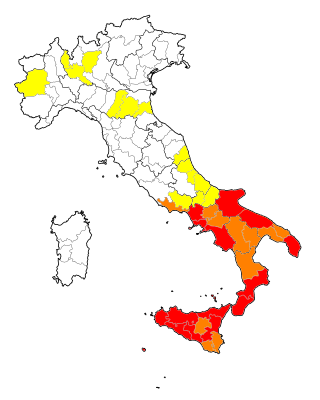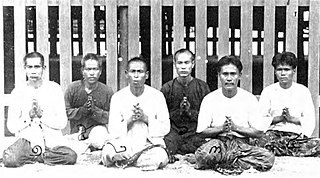
Organized crime or organised crime is a category of transnational, national, or local group of centralized enterprises run to engage in illegal activity, most commonly for profit. While organized crime is generally thought of as a form of illegal business, some criminal organizations, such as terrorist groups, rebel forces, and separatists, are politically motivated. Many criminal organizations rely on fear or terror to achieve their goals or aims as well as to maintain control within the organization and may adopt tactics commonly used by authoritarian regimes to maintain power. Some forms of organized crime simply exist to cater towards demand of illegal goods in a state or to facilitate trade of goods and services that may have been banned by a state. Sometimes, criminal organizations force people to do business with them, such as when a gang extorts protection money from shopkeepers. Street gangs may often be deemed organized crime groups or, under stricter definitions of organized crime, may become disciplined enough to be considered organized. A criminal organization can also be referred to as an outfit, a gang, crime family, mafia, mob, (crime) ring, or syndicate; the network, subculture, and community of criminals involved in organized crime may be referred to as the underworld or gangland. Sociologists sometimes specifically distinguish a "mafia" as a type of organized crime group that specializes in the supply of extra-legal protection and quasi-law enforcement. Academic studies of the original "Mafia", the Italian Mafia generated an economic study of organized crime groups and exerted great influence on studies of the Russian mafia, the Chinese triads, the Hong Kong triads, and the Japanese yakuza.
A gangster is a criminal who is a member of a gang. Most gangs are considered to be part of organized crime. Gangsters are also called mobsters, a term derived from mob and the suffix -ster. Gangs provide a level of organization and resources that support much larger and more complex criminal transactions than an individual criminal could achieve. Gangsters have been active for many years in countries around the world. Gangsters are the subject of many novels, films, television series, and video games.
Wo Shing Wo or WSW is the oldest of the Wo Group triad societies, and is the triad with the longest history in Hong Kong. According to the Hong Kong police, the triad is involved in extortion, drug trafficking, gambling and prostitution.
The United Bamboo Gang, also known as the Bamboo Union, is the largest of Taiwan's three main criminal Triads. They are reported to have roughly 20,000 members. The membership consists largely of waishengren and has had historic ties to the Kuomintang; they are said to be motivated as much by political ideology as by profit. They are known to simply call themselves "businessmen", but in reality, are also involved in organized killings and drug trafficking. The gang gained global notoriety when it became directly involved in politics in the early 1980s.
A mara is a form of gang originating in the United States, which spread to Central American countries such as El Salvador, Honduras and Guatemala.

Criminal organizations have been prevalent in Italy, especially in the southern part of the country, for centuries and have affected the social and economic life of many Italian regions since at least the 19th century. There are six major native mafia-like organizations that are heavily active in Italy. The oldest and most powerful of these organizations, having begun to develop between 1499 and 1800, are the 'Ndrangheta from Calabria, the Cosa Nostra from Sicily, and the Camorra based in Campania. In addition to these three long-established organizations, there are also three other significantly active organized crime syndicates in Italy that were founded in the 20th century: the Stidda of Sicily and the Sacra Corona Unita and Società foggiana, both from Apulia.
The Flying Dragons, also known as FDS, was a Chinese American street gang that was prominent in New York City's Chinatown from the 1970s to the early 1990s. Formed in 1967, by immigrants primarily from Hong Kong, they are affiliated with the Hip Sing Tong. Throughout the 1980s, the gang often engaged in bloody turf wars with the newer Ghost Shadows gang. Their activities have included extortion, kidnapping, murder, racketeering, and illegal gambling. The gang moved heavily into heroin trafficking after the Italian-American Mafia lost the trade as a result of the Pizza Connection prosecutions in the mid-1980s.
In the late 19th and early 20th centuries, African American organized crime emerged following the first and second large-scale migration of African Americans from the Southern United States to major cities of the Northeast, Midwest, and later the West Coast. In many of these newly established communities and neighborhoods, criminal activities such as illegal gambling, speakeasies and were seen in the post-World War I and Prohibition eras. Although the majority of these businesses in African American neighborhoods were operated by African Americans, it is often unclear the extent to which these operations were run independently of the larger criminal organizations of the time.
Albanian mafia or Albanian organized crime are the general terms used for criminal organizations based in Albania or composed of ethnic Albanians. Albanian organized crime is active in Europe, North America, South America, and various other parts of the world including the Middle East and Asia. The Albanian Mafia participates in a diverse range of criminal enterprises including trafficking in drugs, arms, and humans. Thanks to their close ties with the 'Ndrangheta of Calabria, they control a large part of the billion dollar wholesale cocaine market in Europe and appear to be the primary distributors of cocaine in various European drug hubs including London. Albanian organized crime is characterized by diversified criminal enterprises which, in their complexity, demonstrate a very high criminal capacity. In Albania, there are over 15 mafia families that control organized crime. According to some sources, Albania is the first European narco state.

Approximately 1.4 million people in the United States were part of gangs as of 2011, and more than 33,000 gangs were active in the country. These include national street gangs, local street gangs, prison gangs, outlaw motorcycle clubs, and ethnic and organized crime gangs.
The Macedonian mafia is a body of illegal gangs and criminal organizations operating in North Macedonia and within the Macedonian diaspora.
Organised Crime and Gangs in Australia refers to the activities of various groups of crime families, organised crime syndicates or underworld activities including drug trafficking, contract killing, racketeering and other crimes in Australia.
Original Gangsters (OGs) is a criminal gang in Sweden. Founded in 1993, it has its base in Gothenburg and members in Halmstad and Jönköping, among other places, and is one of a handful of Swedish criminal gangs that have received significant media attention. Its leader and founder is Denho Acar, who fled Sweden in 2007. The current number of members is uncertain: Original Gangsters' own figures of some one hundred active were disputed by the Swedish police, which describe the gang as currently being largely decimated.

Armenian Power 13, also known as AP, the Armenian Mob, or Armenian Mafia is an Armenian criminal organization and street gang founded and currently based in Los Angeles County, California. They are involved in drug trafficking, murder, assault, fraud, identity theft, illegal gambling, kidnapping, racketeering, robbery and extortion. They are believed to have around 200 members and hundreds of associates, according to the U.S. attorney’s office. They are also well known for their connections with the Mexican Mafia.
Although organized crime has always existed in Sweden, it has risen significantly in the 2000s. The number of organized criminal groups operating in the country continues to rise. In 2018, Sweden had the highest gun deaths in total across Europe, and deaths involving guns tripled in Sweden between 2012 and 2020.
La Oficina de Envigado is a drug cartel and criminal organization originally founded as an enforcement wing and debt collection service of Pablo Escobar's Medellín Cartel. Despite being noted for its historical affiliation with drug trafficking and other organized crime activities, Oficina de Envigado's criminal activities were no longer centered on direct involvement in such activity by 2019 and are now mainly focused on providing services to lower level drug traffickers and mafia groups. It operates throughout Colombia, but mainly in the cities of Medellín and Envigado. It also controlled extortion, gambling, and money laundering businesses within the Valle de Aburrá that surrounds Medellín. It positioned itself as the chief mediator and debt collector in drug trafficking disputes and maintained major connections with Colombian paramilitaries and guerillas.
The Armenian mafia is a general term for organized criminal gangs that consist of ethnic Armenians. In Armenia, the structure is organized in clans called yekhpayrutyuns.

A triad is a Chinese transnational organized crime syndicate based in Greater China with outposts in various countries having significant overseas Chinese populations.
Turkish mafia is the general term for criminal organizations based in Turkey and/or composed of (former) Turkish citizens. Crime groups with origins in Turkey are active throughout Western Europe and less so in the Middle East. Turkish criminal groups participate in a wide range of criminal activities, internationally the most important being drug trafficking, especially heroin. In the trafficking of heroin they cooperate with Bulgarian mafia groups who transport the heroin further to countries such as Italy. Recently however, Turkish mafia groups have also stepped up in the cocaine trafficking world by directly participating in the massive cocaine smuggling pipeline that runs transnationally from South America to Europe. They allegedly have a lucrative partnership with the Venezuelan drug-trafficking organization known as the Cartel of the Suns who ships them cocaine along with criminal elements from Ecuador. Turkish organized crime has pushed into less traditional cocaine markets as well such as into Eastern Europe, the Caucasus, and the wealthy petro-states of the Persian Gulf. Cosa Nostra and the Turkish mafia are also known to be extremely close. Criminal activities such as the trafficking of other types of drugs, illegal gambling, human trafficking, prostitution or extortion are committed in Turkey itself as well as European countries with a sizeable Turkish community such as Germany, Netherlands, Belgium, Albania, and the United Kingdom.

Operation Community Shield is an ongoing multi-agency law enforcement initiative targeting violent gang members and their associates involved in the illegal drug and human trafficking industries in the United States. Since its launch by U.S. Immigration and Customs Enforcement (ICE) in February 2005, Homeland Security Investigations (HSI) and other participating federal, state and local law enforcement agencies have made more than 40,000 gang-related arrests, including 451 gang leaders, representing more than 2,400 different gangs and organizations, and have seized more than 8,000 guns in multiple projects.





